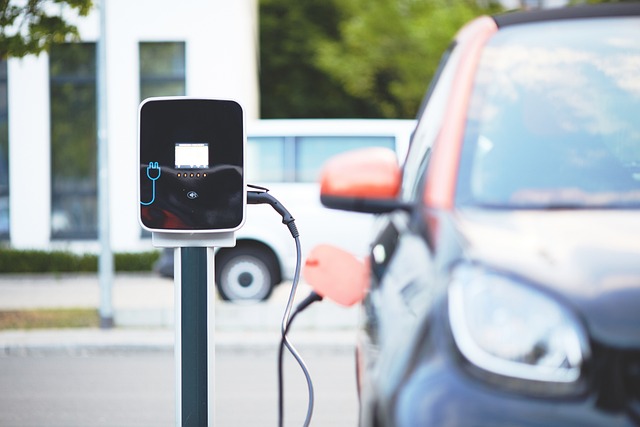EV Charging Revolution: Powering the Future of Cars
As electric vehicles reshape the automotive landscape, understanding the intricacies of EV charging becomes crucial. From rapid advancements in charging technology to the convenience of portable solutions, this article explores the diverse world of EV chargers. Discover how these innovations are not only enhancing the EV experience but also paving the way for a more sustainable transportation future.

The electric vehicle (EV) revolution is in full swing, and at its core lies the critical infrastructure of charging technology. As we navigate this electrifying transition, it’s essential to understand the various charging options available and how they’re shaping the future of transportation.
The Charging Spectrum: From Slow and Steady to Lightning Fast
EV charging solutions come in a variety of forms, each catering to different needs and scenarios:
-
Level 1 Chargers: These are the most basic chargers, typically using a standard 120-volt household outlet. While slow, they’re perfect for overnight charging at home, providing about 3-5 miles of range per hour of charging.
-
Level 2 Chargers: Operating on a 240-volt circuit, these are the workhorses of EV charging. Found in homes, workplaces, and public stations, they can fully juice up an EV in 4-8 hours, depending on battery capacity. Their balance of speed and accessibility makes them a popular choice for daily charging needs.
-
DC Fast Chargers: Also known as Level 3 chargers, these are the sprinters of the charging world. Capable of charging an EV to 80% in just 30-60 minutes, they’re strategically placed along highways and in urban centers to facilitate long-distance travel and quick top-ups.
-
Wireless Chargers: Still in their infancy, these futuristic chargers use electromagnetic fields to transfer power without physical connections. While currently less efficient than wired options, they promise a cable-free charging future.
Portable Chargers: Power on the Go
Portable EV chargers are revolutionizing the charging landscape, offering unparalleled flexibility:
- Emergency Lifeline: They provide a crucial backup for unexpected battery depletion, ensuring you’re never stranded.
- Charging Anywhere: From remote campsites to parking lots without infrastructure, portable chargers expand your charging horizons.
- Travel Companion: They’re invaluable for road trips through areas with sparse charging networks.
- Cost-Effective Solution: For frequent travelers, owning a portable charger can be more economical than relying solely on public charging stations.
Choosing Your Ideal Charging Station
Selecting the right charging solution involves weighing several factors:
- Charging Speed: Assess your daily driving habits to determine if you need rapid charging or if overnight charging suffices.
- EV Compatibility: Ensure the charger works seamlessly with your specific vehicle model.
- Installation Requirements: Consider whether you need professional installation or if a plug-and-play solution is suitable.
- Smart Features: Many modern chargers offer app connectivity, scheduling, and energy management capabilities.
- Durability: For outdoor installations, opt for weather-resistant models.
- Economic Considerations: Weigh the initial investment against potential long-term electricity savings.
Charging Stations: Guardians of Battery Health
Modern charging stations do more than just replenish batteries; they play a crucial role in maintaining battery longevity:
- Intelligent Charging: Advanced algorithms optimize charging rates to minimize battery stress.
- Thermal Management: Some chargers incorporate cooling systems to prevent battery overheating during rapid charging.
- Scheduled Charging: By enabling off-peak hour charging, these stations help maintain optimal charge levels and potentially reduce electricity costs.
- Health Monitoring: Many stations provide insightful data on battery health, empowering owners to take proactive measures.
- Bi-Directional Capabilities: Emerging V2G (Vehicle-to-Grid) technology allows EVs to give back to the grid, creating a more balanced energy ecosystem.
The Horizon of EV Charging Innovation
The future of EV charging is brimming with exciting possibilities:
- Ultra-Rapid Charging: Researchers are pushing the boundaries, aiming for full charges in as little as 10 minutes.
- Solar-Integrated Stations: Combining solar panels with charging infrastructure for sustainable energy sourcing.
- V2G Networks: Creating smart grids where EVs act as mobile energy storage units, balancing electricity demand.
- In-Road Charging: Embedding charging technology directly into road surfaces for continuous charging while driving.
- AI-Optimized Networks: Leveraging artificial intelligence to strategically place charging stations and manage energy distribution efficiently.
As electric vehicles continue to gain traction, the evolution of charging technology keeps pace, addressing range anxiety and enhancing the overall EV experience. From the convenience of home charging to the rapid advancements in public infrastructure, the world of EV charging is dynamic and full of potential. These innovations are not just improving the practicality of electric vehicles; they’re paving the way for a more sustainable and electrified transportation future. As we charge ahead, the synergy between EVs and their charging ecosystems will play a pivotal role in shaping our clean energy roadmap.





